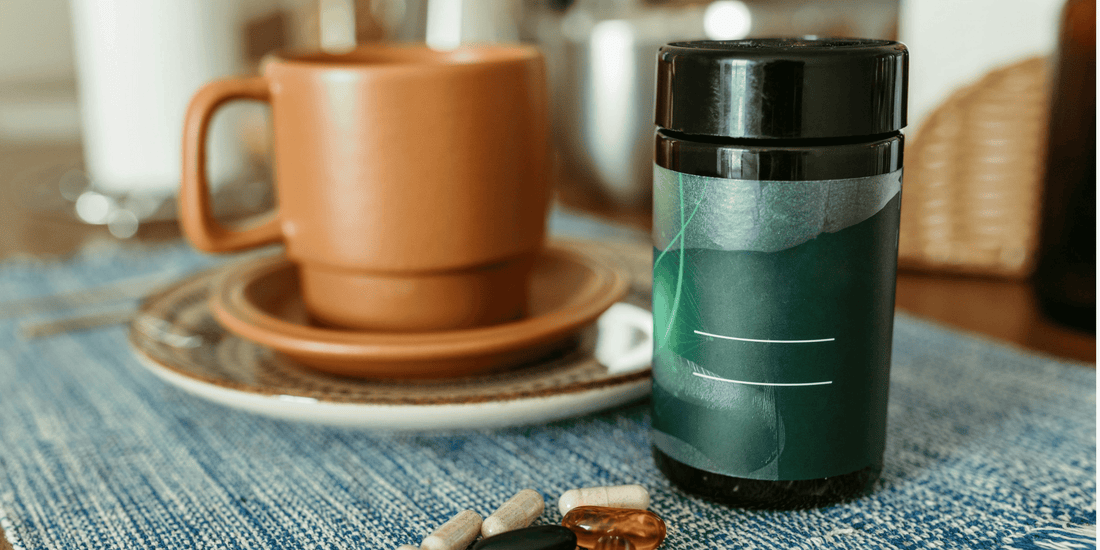
Nootropics: Brain Boost or Just Hype?
“Nootropics” sound fancy, maybe even a bit Silicon Valley. But are they actually helpful - or just another wellness trend wrapped in buzzwords?
If you’ve ever downed a second coffee during the 3 p.m. slump or Googled “how to focus when sleep-deprived,” you’re not alone. Whether you’re managing a toddler meltdown, a work deadline, or your own mental fog—feeling sharp matters.
Nootropics claim to help. But what are they exactly?
What Are Nootropics?
In plain terms, nootropics are substances that may enhance brain function, especially in areas like focus, memory, mood, or motivation. They’re sometimes called “smart drugs,” but that name is... misleading at best.
Nootropics fall into two big buckets:
- Natural nootropics – like caffeine, L-theanine (in green tea), omega-3s, and herbs like ginkgo biloba or ashwagandha.
- Synthetic nootropics – lab-made compounds like modafinil or racetams, often used off-label for cognitive effects.
Some nootropics are found in supplements or wellness drinks. Others are prescription-only and not meant for casual use.
What Do They Claim to Do?
Nootropics are said to:
- Improve memory or focus
- Boost mood or reduce anxiety
- Increase motivation and alertness
- Protect brain health over time
You’ll see big claims on labels: “mental clarity,” “laser focus,” “brain boost.”
But do they hold up?
Do Nootropics Actually Work?
Some do. Some don’t. And some fall firmly in the “we need more research” camp.
Here’s what the science actually says:
Nootropics with some evidence:
- Caffeine + L-theanine (green tea duo): Together, they boost alertness without the jitters. Backed by solid studies.
- Creatine: Yes, the gym supplement. Also supports short-term memory and brain energy, especially if you’re sleep-deprived or vegetarian.
- Rhodiola rosea: May reduce fatigue and improve mental performance in stressful situations.
- Omega-3s (EPA/DHA): Good for long-term brain health, especially postpartum and as we age.
Nootropics with mixed or weak evidence:
- Ginkgo biloba: Promoted for memory, but research results are inconsistent.
- Bacopa monnieri: May help with memory long-term, but effects take weeks.
- Lion’s Mane mushroom: Early research looks promising - but mostly in animals so far.
Caution / Little to no evidence:
- “Brain booster” stacks: Some supplements throw in 10+ ingredients. The doses are often too low to be effective—or not well studied together.
- Synthetic options (like modafinil): Effective in clinical use, but not intended for daily wellness—and may have side effects or dependency risks.
Are They Safe?
Generally, natural nootropics are considered low risk when taken in reasonable doses. But:
- Always check for interactions if you’re on medications (especially for mood, thyroid, or blood pressure).
- Avoid “proprietary blends” that don’t list exact dosages.
- And remember: “natural” doesn’t mean harmless—especially if you’re pregnant or breastfeeding.
So… Are Nootropics Just Another Trend?
Sort of. Like adaptogens or collagen, nootropics have been swept up into the wellness hype machine. But that doesn’t mean they’re useless - it just means the marketing is louder than the science.
If you’re hoping for a supplement that magically replaces sleep, good food, and downtime: this isn’t it.
But if you’re curious, and want to experiment with evidence-backed, low-risk options (like caffeine + L-theanine, or omega-3s), they can be a helpful nudge, not a miracle fix.
